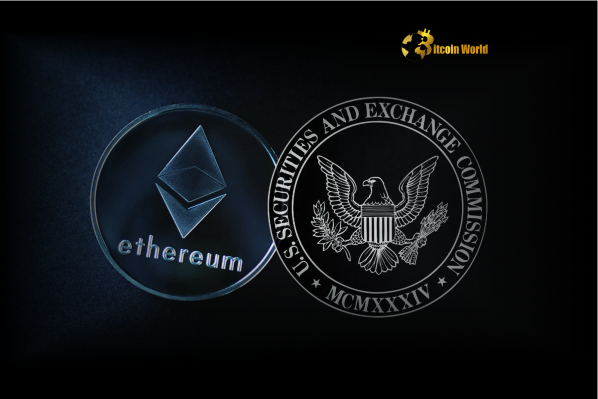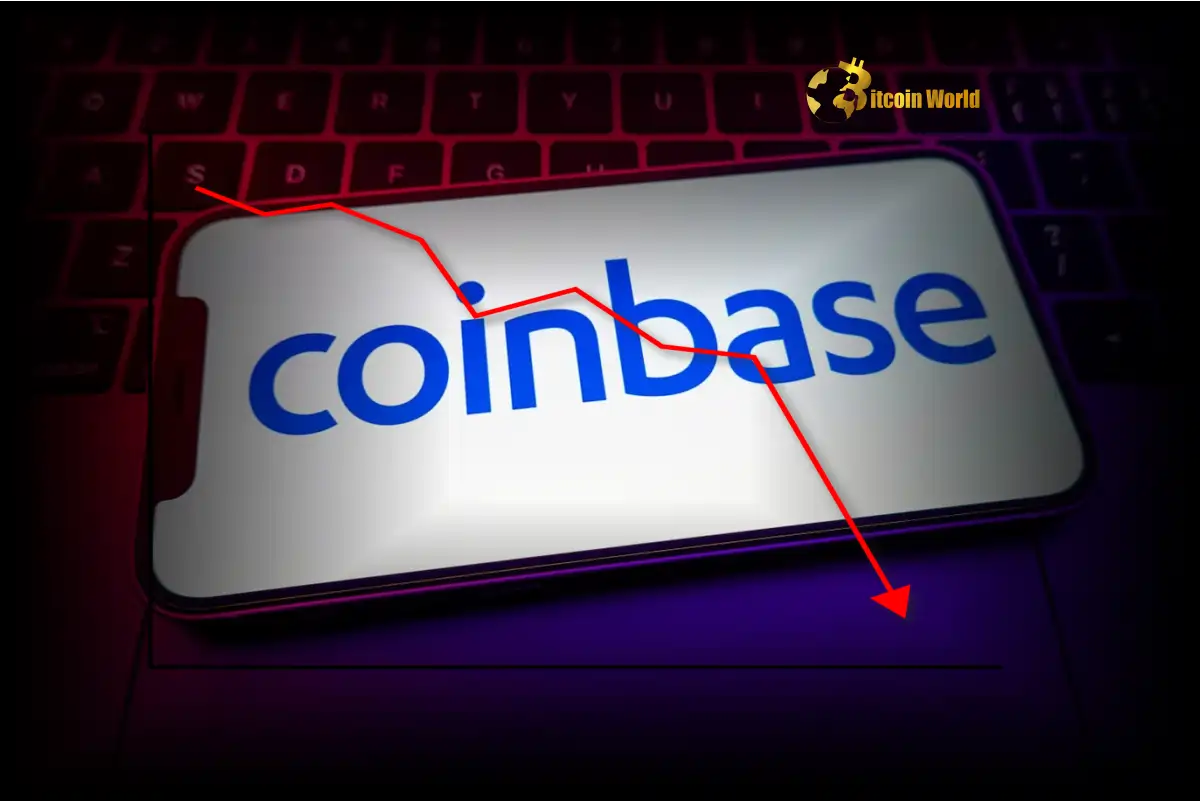BitcoinWorld

PayPal Unlocks Arbitrum: A Game-Changer for PYUSD Stablecoin Adoption
In the rapidly evolving world of digital finance, every strategic move by a major player sends ripples across the market. PayPal, a name synonymous with online payments, has just made a significant one, poised to redefine accessibility and efficiency for its digital currency users. The latest update to PayPal’s Cryptocurrency Terms and Conditions, quietly updated on July 16, reveals a crucial expansion for its native stablecoin, PYUSD. Beyond its existing presence on the Ethereum network and Solana network, PYUSD now officially embraces Arbitrum support. This isn’t just a technical tweak; it’s a strategic enhancement that could profoundly impact how users interact with PayPal crypto and the broader stablecoin ecosystem.
PayPal’s Bold Move: Embracing Arbitrum Support for PYUSD
The announcement that PayPal’s PYUSD stablecoin is now supported on Arbitrum is a testament to the increasing demand for scalable and cost-effective blockchain solutions. For those new to the space, Arbitrum is a leading Layer 2 (L2) scaling solution built on top of Ethereum. Think of Ethereum as a bustling superhighway that can sometimes get congested, leading to higher tolls (gas fees) and slower speeds. Arbitrum acts like a dedicated fast lane, processing transactions off the main highway and then bundling them efficiently back onto Ethereum. This dramatically reduces transaction costs and increases speed, making it far more practical for everyday use.
Why is this Arbitrum support so significant for PYUSD? Here’s a quick breakdown:
- Reduced Transaction Costs: One of the biggest hurdles for widespread crypto adoption has been the high gas fees on popular networks like Ethereum. Arbitrum slashes these costs, making micro-transactions and frequent transfers of PYUSD far more affordable.
- Increased Transaction Speed: While Ethereum can handle a certain number of transactions per second, Arbitrum can process thousands. This means faster confirmations for PYUSD transfers, enhancing user experience.
- Enhanced Scalability: As PayPal’s stablecoin potentially sees wider adoption, the underlying network needs to handle a massive volume of transactions without faltering. Arbitrum provides the necessary scalability to support a growing user base.
- Broader Accessibility: By expanding to Arbitrum, PYUSD becomes accessible to a wider array of decentralized applications (dApps) and users already active within the Arbitrum ecosystem, fostering greater interoperability.
This strategic decision highlights PayPal’s commitment to not just entering the crypto space but actively participating in its evolution by leveraging cutting-edge scaling solutions. It’s a clear signal that they understand the practical needs of crypto users.
Decoding PYUSD: PayPal’s Stablecoin and Its Multi-Chain Foundation
To truly appreciate the significance of Arbitrum integration, let’s first understand what PYUSD stablecoin is and how it operates. Launched in August 2023, PYUSD is a U.S. dollar-pegged stablecoin. This means that, in theory, one PYUSD will always be redeemable for one U.S. dollar. Unlike volatile cryptocurrencies like Bitcoin or Ethereum, stablecoins aim to maintain a stable value, making them ideal for payments, remittances, and as a store of value without the dramatic price swings.
Crucially, PayPal’s Cryptocurrency Terms and Conditions explicitly state that PYUSD is issued by Paxos Trust Company, not PayPal itself. Paxos is a regulated blockchain infrastructure platform and a regulated stablecoin issuer. This arrangement provides a layer of trust and regulatory compliance, as Paxos is subject to oversight by the New York Department of Financial Services (NYDFS). This distinction is vital; while PayPal facilitates the access and use of PYUSD for its vast user base, the underlying issuance and reserves management are handled by a dedicated, regulated entity.
Before Arbitrum, PYUSD was primarily available on the Ethereum network and the Solana network. Let’s briefly look at these foundational networks:
| Network | Characteristics | Role for PYUSD |
|---|---|---|
| Ethereum Network | The largest and most established smart contract platform; robust security, vast developer ecosystem, but can face high fees and congestion. | Primary settlement layer for many stablecoins, offering unparalleled security and decentralization. |
| Solana Network | Known for its extremely high transaction throughput and low fees; designed for speed and scalability, though it has faced occasional network outages. | Provides a fast and cost-effective alternative for users prioritizing speed for transactions. |
| Arbitrum Network | A leading Layer 2 scaling solution built on Ethereum; offers significantly lower fees and faster transactions than Ethereum mainnet. | Enhances practical usability and broadens reach within the thriving Ethereum L2 ecosystem. |
The decision to deploy PYUSD across multiple blockchains from the outset, and now to expand with Arbitrum support, underscores a strategic vision. It acknowledges that no single blockchain can serve all purposes perfectly. By offering PYUSD on different networks, PayPal and Paxos are catering to diverse user needs and preferences, from the robust security of Ethereum to the lightning-fast speeds of Solana, and now the cost-efficiency and scalability of Arbitrum.
What This Means for PayPal Crypto Users and Beyond
For the millions of individuals who already engage with PayPal crypto services, this integration unlocks a new realm of possibilities. While PayPal has been steadily expanding its crypto offerings, allowing users to buy, hold, and sell cryptocurrencies, the introduction of PYUSD was a significant step towards enabling actual crypto payments and transfers. With Arbitrum now in the mix, the practical utility of PYUSD for everyday transactions gets a massive boost.
Consider the typical user scenario: you want to send PYUSD to a friend, pay for a service, or engage with a DeFi application. On the Ethereum mainnet, even a small transaction could incur fees that make it impractical for routine use. On Arbitrum, those fees plummet, making PYUSD a genuinely viable option for more frequent and smaller-value transactions. This move is not just about technology; it’s about usability and expanding the real-world applications of a stablecoin backed by a financial giant like PayPal.
Beyond individual users, this development has broader implications for the stablecoin market and institutional adoption of blockchain technology:
- Increased Stablecoin Utility: As more stablecoins become available on L2 solutions, their utility as a medium of exchange grows exponentially. This move by PayPal pushes the entire industry forward.
- Validation for Layer 2s: A major financial player like PayPal adopting an L2 solution like Arbitrum provides significant validation for the technology, potentially encouraging other institutions to follow suit.
- Competitive Edge: In a crowded stablecoin market, offering multi-chain support with a focus on efficiency can be a key differentiator for PYUSD, attracting users who prioritize low costs and fast transactions.
- Future-Proofing: By building a multi-chain presence, PayPal is positioning PYUSD to be resilient and adaptable to the evolving blockchain landscape, ensuring it remains relevant regardless of which network gains prominence.
The goal is clear: make stablecoins as easy and inexpensive to use as traditional digital payments, and PayPal is taking concrete steps to achieve this.
Navigating the Digital Frontier: Opportunities and Challenges for PYUSD
While the addition of Arbitrum support presents immense opportunities for PYUSD stablecoin, it’s also important to consider the broader landscape of challenges and opportunities that lie ahead for PayPal in the crypto space. The digital asset frontier is constantly shifting, marked by technological innovation, regulatory scrutiny, and fierce competition.
Opportunities:
- Expanding Global Reach: Stablecoins, particularly those backed by major currencies like the USD, have the potential to revolutionize cross-border payments by offering faster, cheaper alternatives to traditional remittance services. PayPal’s global footprint positions PYUSD strongly in this area.
- DeFi Integration: With Arbitrum support, PYUSD becomes more deeply integrated into the decentralized finance (DeFi) ecosystem. This could lead to new use cases within lending, borrowing, and yield farming protocols, attracting a new segment of users.
- Merchant Adoption: As PayPal continues to integrate crypto capabilities, the increased efficiency of PYUSD on Arbitrum could make it a more attractive option for merchants looking to accept digital payments, potentially reducing processing fees and settlement times.
- Innovation Catalyst: PayPal’s active participation in the blockchain space can spur further innovation, not just within its own offerings but across the entire industry, encouraging more mainstream companies to explore crypto solutions.
Challenges:
- Regulatory Uncertainty: The regulatory landscape for stablecoins is still evolving globally. Different jurisdictions may impose varying rules, which could impact PYUSD’s operations and adoption. Maintaining compliance across diverse legal frameworks will be crucial.
- Competition: The stablecoin market is highly competitive, with established players like USDT (Tether) and USDC (USD Coin) dominating. PYUSD needs to continually demonstrate unique value propositions, such as its deep integration with PayPal’s existing user base, to carve out significant market share.
- Network Fragmentation: While multi-chain support is beneficial, it can also lead to network fragmentation, where liquidity is spread across different chains. Ensuring seamless bridging and user experience across Ethereum network, Solana network, and Arbitrum will be key.
- Technological Risks: Despite their benefits, L2 solutions and blockchain networks, in general, are not without risks, including potential smart contract vulnerabilities or network congestion. Ongoing security audits and robust infrastructure are paramount.
PayPal’s move to embrace Arbitrum demonstrates a proactive approach to addressing some of these challenges, particularly around scalability and cost, while positioning itself to capitalize on future opportunities.
A New Era for Digital Payments: The Lasting Impression
PayPal’s quiet but impactful update, confirming Arbitrum support for its PYUSD stablecoin, marks a significant milestone in the journey towards mainstream digital asset adoption. By leveraging advanced Layer 2 scaling solutions, PayPal is not just adding another chain; it’s enhancing the practical utility and accessibility of its stablecoin for millions of users worldwide. This strategic expansion across the Ethereum network, Solana network, and now Arbitrum, positions PYUSD as a versatile and efficient digital dollar, ready for the demands of modern commerce.
This move underscores a broader trend: the convergence of traditional finance and cutting-edge blockchain technology. As more financial giants like PayPal embrace the benefits of decentralized networks, we can expect to see a continued evolution in how we conduct transactions, manage our finances, and interact with digital value. For PayPal crypto users, this means a smoother, faster, and more affordable experience, paving the way for stablecoins to truly fulfill their promise as a cornerstone of the future of money.
To learn more about the latest stablecoin developments and their impact on the crypto market, explore our article on key developments shaping the future of digital payments and institutional adoption.
This post PayPal Unlocks Arbitrum: A Game-Changer for PYUSD Stablecoin Adoption first appeared on BitcoinWorld and is written by Editorial Team





